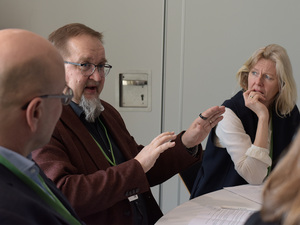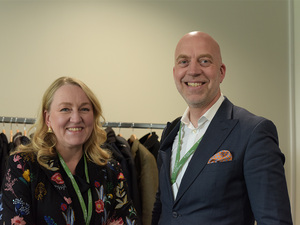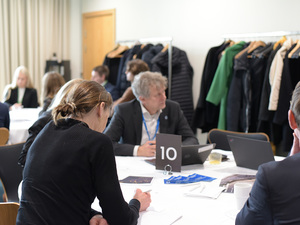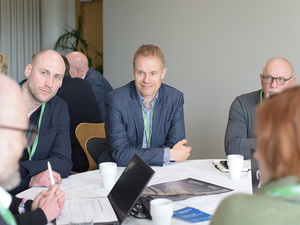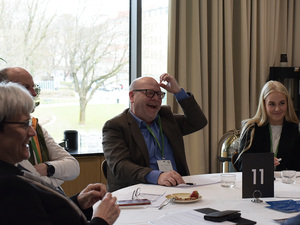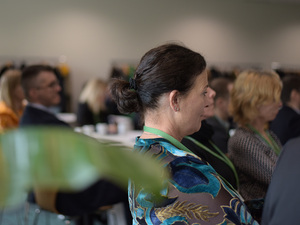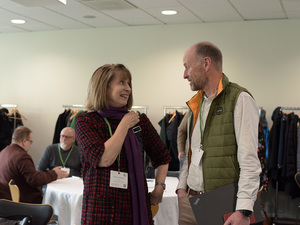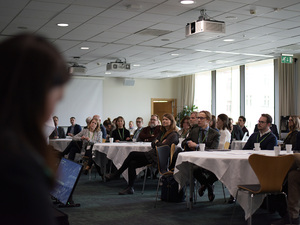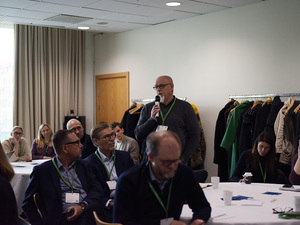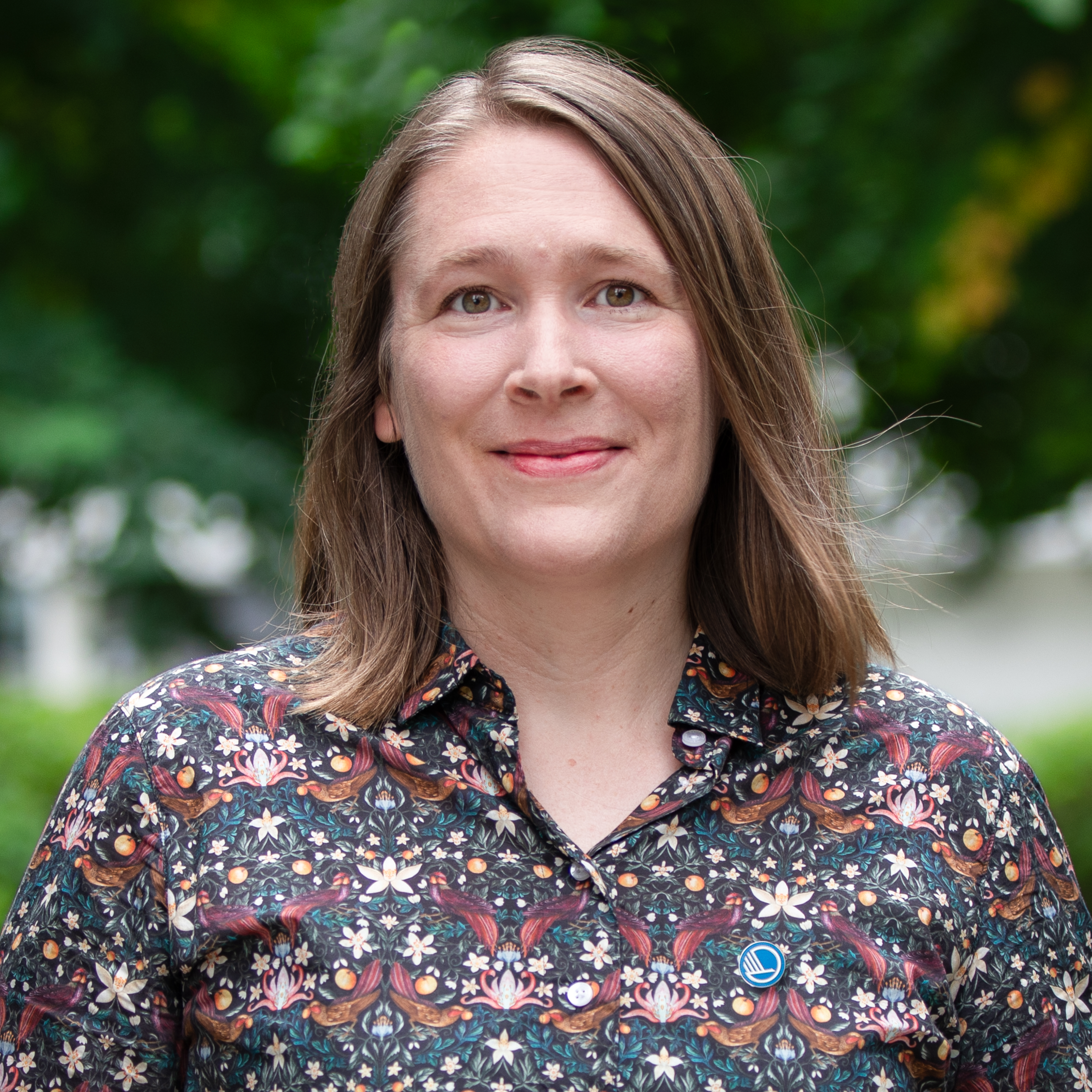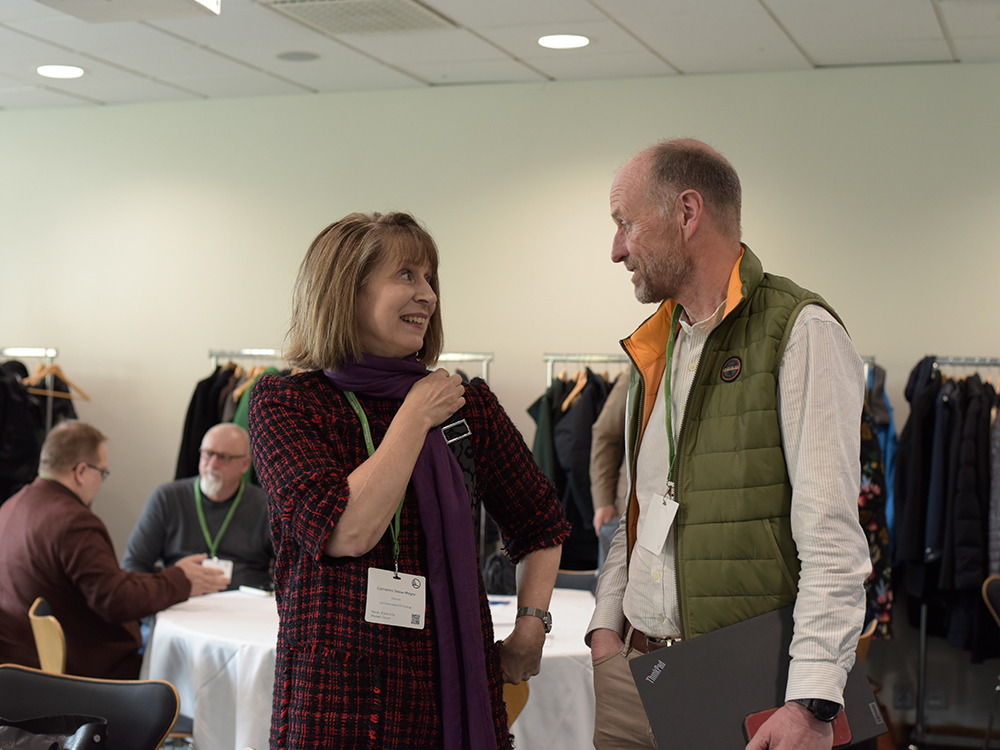
Nordic Electricity Market Forum 2024
Market regulation, flexibility, long-term conditions for new energy production, and electrification of industries were some of the issues discussed when a hundred Nordic stakeholders in the energy sector gathered in…
Market regulation, flexibility, long-term conditions for new energy production, and electrification of industries were some of the issues discussed when a hundred Nordic stakeholders in the energy sector gathered in Stockholm on 22-23 April for this year’s Nordic Electricity Market Forum. Inspiring keynote speeches, panel discussions, and group work were part of the programme.
“One key takeaway from this year’s forum is the importance of working together to enhance our common Nordic electricity market. The national perspectives on energy supply and demand are fundamental, but it’s evident that on a shared market we also need a shared effort in order to have a stable and competitive market,” says Andrea Stengel, Senior Adviser, Nordic Energy Research, and responsible for the Electricity Market Group that holds the Nordic Electricity Market Forum.
A first step towards a better functioning market
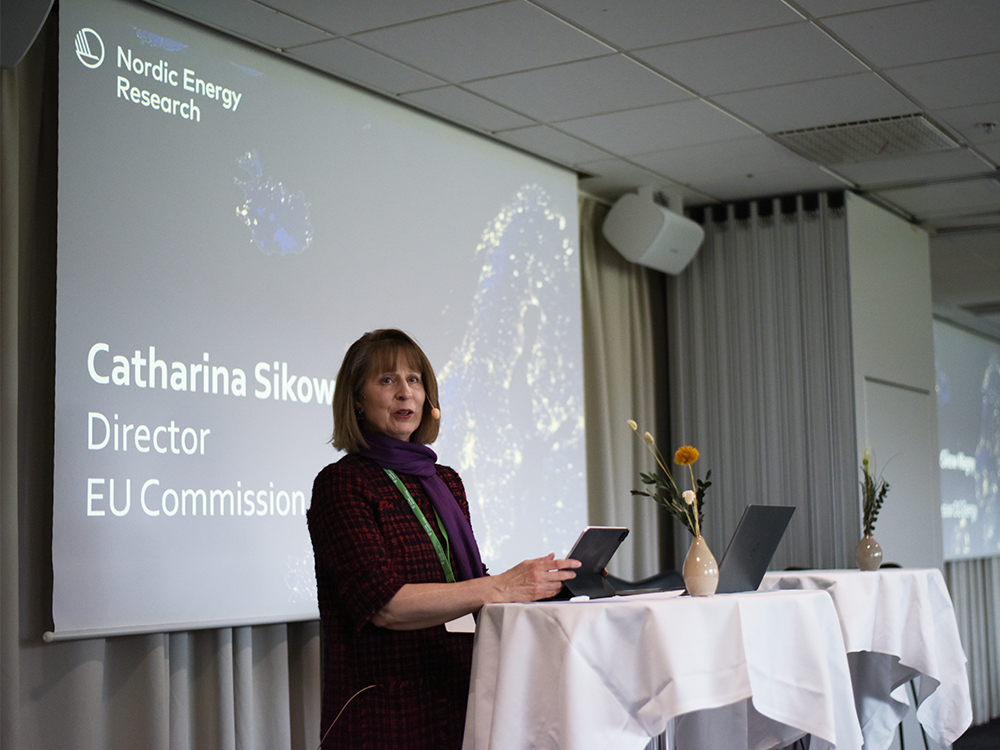
Catharina Sikow-Magny, Director, EU Commission DG Energy.
This year’s theme for the forum was the implementation of the Electricity Market Design Package, and Catharina Sikow-Magny, Director, EU Commission, DG Energy, opened the forum with a keynote speech focusing on the package and the process going forward. A vote on the package is expected in the European Council at the end of April, and thereafter, implementation in the European countries will start. Sikow-Magny also said that there is no plan for the 2.0 package and that the commission’s key priority now is to get it right and to implement it properly. There was a great interest from the commission to take part in the forum’s input on the implementation, which was discussed in the break-out session during the day.
“There’s a cultural war in energy policy”
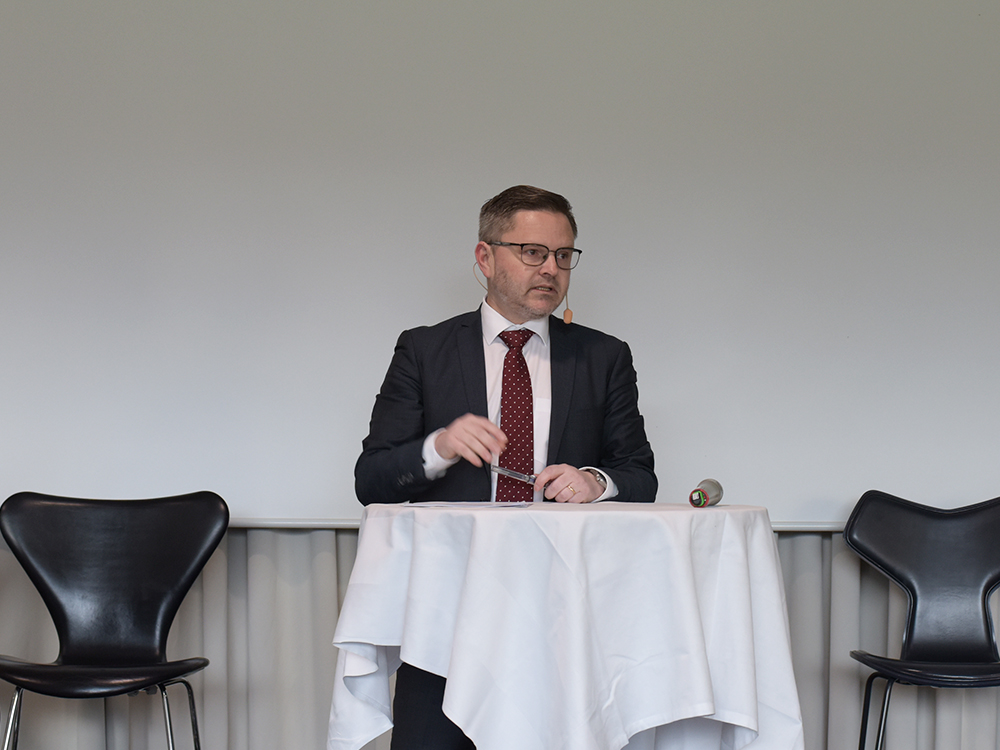
Daniel Liljeberg, State Secretary for Energy, Swedish Government.
On the second day of the forum, Daniel Liljeberg, State Secretary for Energy, gave the audience further insight into the Swedish Government’s new bill on the long-term direction of energy policy. The target for the bill is to enable a doubling of the Swedish energy production until 2045.
Liljeberg highlighted how essential the electricity markets are for reaching our goals and talked about the Swedish Electricity Market Inquiry that is currently being conducted. In his conclusions, Liljeberg also reflected on the cultural war that has been present in the debate, encouraging to all experts to deliver on the supply and stability goals and to lay the conflict about the type of energy production aside.
“Securing capacity when we need it will become increasingly important for all Nordic countries”
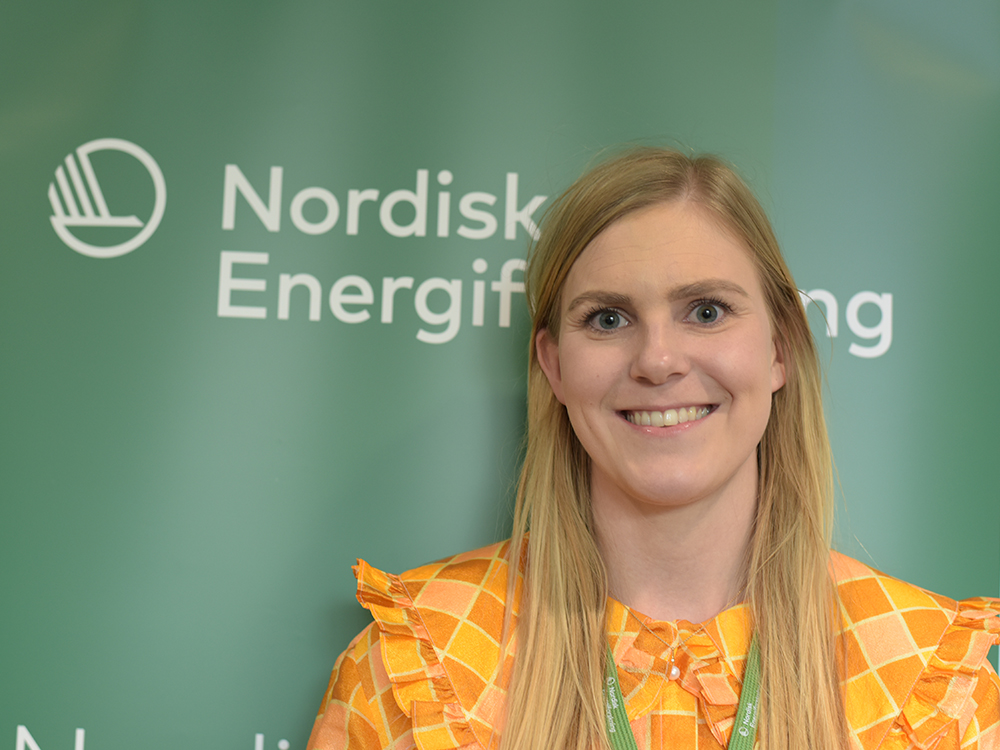
Maiken Thomsen, Lead Business Developer at Ørsted Bioenergy.
One of the participants at the forum was Maiken Thomsen, Lead Business Developer at Ørsted Bioenergy in Denmark. For Ørsted Bioenergy, the framework for investments in firm capacity is one of the most important questions to address at the forum. “We own and operate several power plants in Denmark that contribute with flexibility and stability to the system, thus enabling a well-functioning Danish and Nordic electricity market. But there is still great uncertainty regarding the role of firm capacity, and we see the need for political clarity on the conditions for it,” according to Rasdal.
Rasdal says that the most crucial issue for the Nordic energy cooperation in the coming years is how to secure effect and stability in the system, especially when the demand is set to dramatically increase due to increased electrification of society. “We already see a lot of hours without sufficient power supply, and securing capacity when we need it will become increasingly important for all Nordic countries. We need stable conditions for the actors that can invest in flexible power that can support the system when it’s needed.”
“I see a great need for a joint system analysis of the Nordic electricity market”
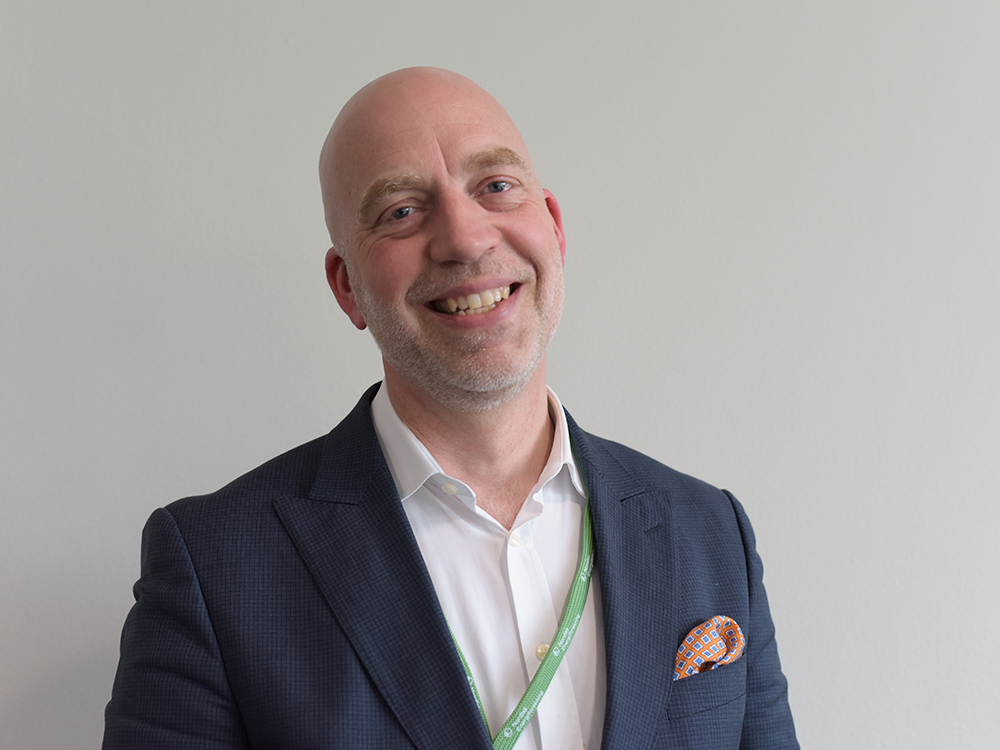
Robert Thorburn, Project Leader for electricity supply and authorisation, the Confederation of Swedish Enterprise.
From the Confederation of Swedish Enterprise, Project Leader for electricity supply and authorisation, Robert Thorburn, attended the forum and he especially highlighted the broad Nordic network it facilitates and good discussions. “There is a great demand for quick solutions, but there are no simple solutions that solve everything. I believe that many of the issues we face are best solved in forums like this, where many actors from different countries and perspectives come together and discuss common challenges,” he says.
There’s great potential for increased cooperation in the Nordics on the electricity market and for more cross-border analysis. “I see a great need for a joint system analysis of the Nordic electricity market. When we look at the countries’ separate analyses, many countries see a need for increased imports, but where will all this capacity come from? The Nordic electricity market is the most integrated in the world, and we have different competitive advantages. I think we need to put those strengths into the spotlight and build on them to secure a stable and competitive system for the future,” Thorburn concludes.
The Nordic Electricity Market Forum
The Nordic Electricity Market Forum was first held in 2018 following an initiative from the Nordic Council of Ministers gathering experts from transmission systems operators, distribution system operations, government, business organisations and academia. The next forum will be held in 2025. For more information about the forum, please visit its website.

